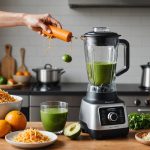Importance of Sustainable Sourcing in the Beverage Industry
In the beverage industry, sustainable sourcing is emerging as a pivotal factor impacting both environmental and economic realms. Traditional sourcing methods often lead to significant environmental impacts, such as habitat destruction and excessive carbon emissions, resulting in long-term ecological damage. This growing concern has prompted a shift towards more eco-friendly practices to mitigate these issues.
Recent trends indicate a rising consumer demand for sustainable choices in both dining and drinking establishments. Consumers are increasingly aware and seek to support businesses committed to sustainable sourcing; this shift represents not just a preference, but a deeper lifestyle choice aligned with environmental consciousness.
Also to read : Elevating dining experience: harnessing customer insights for restaurant menu improvement
For bars and restaurants, adopting sustainable practices extends beyond appealing to an eco-conscious demographic. Such practices can lead to multiple tangible benefits:
- Reduction in costs over time due to energy-efficient systems and waste reduction.
- Enhancement of brand image and customer loyalty by demonstrating commitment to sustainability.
Ultimately, sustainable sourcing is not just about caring for the planet. It is imperative for adapting to evolving consumer expectations within the beverage industry. By embracing these practices, establishments can not only lessen their ecological footprint but also position themselves as responsible businesses in today’s market.
In the same genre : Unlocking social media success: innovative tactics for bars to enhance event visibility and promote special offers
Innovative Approaches to Source Eco-Friendly Spirits
In recent years, the concept of sustainable partnerships has become increasingly important in the beverage industry. Finding ways to integrate innovative sourcing methods into the production of eco-friendly spirits not only addresses environmental issues but also resonates well with a growing number of eco-conscious consumers.
Case Studies of Successful Bar Implementations
Several bars have remarkably transitioned to using eco-friendly spirits with great success. By collaborating with sustainable distilleries, these establishments have reshaped their sourcing strategies. For instance, some have shifted to locally sourced spirits, reducing carbon footprints. Notably, by initiating sustainable partnerships, bars have observed a positive ripple effect on customer satisfaction and sales. Wear Wood Tavern, for instance, reported a 30% increase in customer traffic after adopting these practices.
Interview Insights from Industry Experts
Industry experts emphasize that sustainability is crucial in today’s beverage sector. They recommend that bars and restaurants focus on transparent supply chains and innovative sourcing solutions. Among the prominent challenges faced in sourcing eco-friendly spirits, logistical complexities and certification burdens stand out. However, overcoming these hurdles can significantly enhance brand reputation and consumer trust.
Guidelines for Eco-Friendly Product Sourcing
To source eco-friendly spirits effectively, begin by identifying certified suppliers with a transparent environmental commitment. Utilize certification labels that guarantee sustainability, ensuring informed choices for both businesses and consumers. Establishing a structured checklist for sustainable sourcing helps maintain consistent standards.
Best Practices for Promoting Eco-Friendly Wines
In the wine industry, eco-friendly wines are gaining prominence as consumers demand more sustainable sourcing. To effectively promote these wines, it is vital to follow best practices that ensure the credibility and impact of these efforts.
One of the key strategies is selecting sustainable wine producers. Look for vineyards that implement environmentally-conscious practices such as organic farming and reduced water usage. This not only ensures lower carbon footprints but also strengthens the winery’s reputation for sustainability.
Certifications play a crucial role in identifying eco-friendly wines. Labels such as “Certified Organic” or “Biodynamic” offer assurance that the wine adheres to strict environmental standards. These certifications serve as a trustworthy guide for consumers striving to make environmentally-responsible choices.
Local sourcing further amplifies the impact of sustainability. By sourcing locally, wineries reduce transportation emissions and encourage economic growth within the community. This approach not only minimizes environmental impact but also fosters a closer bond between consumers and producers, enabling the enjoyment of wines that reflect the local terroir.
Engaging consumers in the significance of sustainable wine sourcing can effectively amplify the reach of eco-friendly wines, creating an informed and dedicated community. Encouraging awareness and fostering connections builds an enduring future for sustainability in the wine industry.
Implementing Sustainable Practices in Bars
Implementing sustainable practices is essential for modern bar operations. Adopting eco-friendly strategies not only helps the environment but also resonates with a growing demographic of environmentally conscious patrons.
Reducing Waste in Beverage Offerings
Minimizing waste is a vital aspect of sustainable bar operations. Techniques such as using precise measurement tools and implementing inventory management systems can greatly reduce excess. Efficient use of ingredients is key; for instance, transforming fruit peels and other leftovers into garnishes or infusions enhances zero-waste practices. Additionally, committing to recycling and composting ensures that unavoidable waste is managed responsibly. These practices not only reduce trash but also contribute to a significant reduction in overall environmental impact without compromising the service quality.
Engaging Customers in Sustainability Efforts
Educating patrons about eco-friendly choices fosters a community of sustainability advocates. Simple methods like clear menu symbols or engaging storytelling about a bar’s sustainable practices help inform and inspire. By creating a marketing plan centered around sustainability, bars can leverage eco-focused content, events, and promotions. Partnering with eco-conscious brands expands the bar’s offerings and presents promotional opportunities that highlight shared values, ultimately deepening customer loyalty and driving sustainable choices.
Measuring and Reporting Sustainability Metrics
Tracking environmental impact is crucial for transparency and improvement. Tools that measure the sustainability of sourcing decisions can guide bars in refining their practices. Making sustainability metrics visible to customers fosters trust and encourages community engagement. Hence, implementing strategies for continuous enhancement of sustainable practices not only supports environmental goals but also reflects a commitment to accountability and progress.











